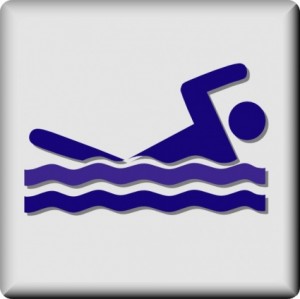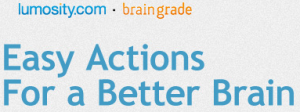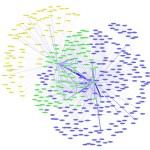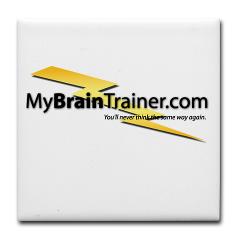 Does the amount of light hitting your eyes impact your alertness and cognitive performance? If so, do we perform better in bright, normal or dim lighting?
Does the amount of light hitting your eyes impact your alertness and cognitive performance? If so, do we perform better in bright, normal or dim lighting?
According to research just reported in the journal Behavioral Neuroscience, the answer is yes, the intensity of light does impact our feeling of sleepiness and how well we objectively perform on a memory test.
What they found was that we are more alert and have improved memory in a room with natural/normal levels of lightening as compared to a room with dim lighting. They did not test for the effects of brighter than normal light.
Although a seemingly minor effect, room lighting is a variable we can control. I’m an interested to hear from readers about studies that measure the impact of lighting effects on brain function and cognitive performance.
Source: Image of Light Intensity in Room
While the Next Brain Blog is dedicated to techniques that improve brain function and enhance cognitive performance, I get a lot of email asking about ways to protect or maintain existing brain health. Fortunately, many techniques work both ways. They will boost your brain power or simply protect what you have depending on your age and the intensity of implementation.
 Take for example a recent study led by the Mayo Clinic that looked at the role of exercise and computer use in avoiding mild cognitive impairment in older adults. A key finding:
Take for example a recent study led by the Mayo Clinic that looked at the role of exercise and computer use in avoiding mild cognitive impairment in older adults. A key finding:
“Even exercising once a week was beneficial. Most of the participants seeing the greatest benefits were exercising five to six times a week combined with computer activity,” says Geda.
The benefit in this case is avoiding age-related memory loss.
On the other hand, walking and exercise has been found to improve cognitive performance not just avoid memory loss. In one example participants had to walk at least 3 times a week for 40 minutes.
Perhaps the habits we develop to boost our intelligence will also be the habits that we need to maintain brain health as we age.
 Several recent studies suggest that you learn better and can improve at problem solving with the right sleep. Enhanced learning has been reported for a full night’s sleep and strategically timed naps. We have covered these in the Next Brain Blog, for example:
Several recent studies suggest that you learn better and can improve at problem solving with the right sleep. Enhanced learning has been reported for a full night’s sleep and strategically timed naps. We have covered these in the Next Brain Blog, for example:
Light Sleep Enough to Integrate New Memories
A Sleeping Mind is a Terrible Thing to Waste
Not All Naps Have Brain Boosting Effects
Now new research from University of Notre Dame looks at the effect of sleep on two different types of memories – episodic or memories for events and semantic or memories of facts about the world. They found:
“Since we found that sleeping soon after learning benefited both types of memory, this means that it would be a good thing to rehearse any information you need to remember just prior to going to bed. In some sense, you may be ‘telling’ the sleeping brain what to consolidate.”
This idea should be easy to test. I am interested to hear from readers that use this technique or any before-you-sleep method to improve brain function and cognitive performance.
 Lumosity, a well respected maker of brain training tools and games, recently shared the results of a massive (750,000 person) survey. They looked for specific daily practices that support optimal cognitive performance.
Lumosity, a well respected maker of brain training tools and games, recently shared the results of a massive (750,000 person) survey. They looked for specific daily practices that support optimal cognitive performance.
Here is what they found:
- 7 hours of sleep is much better than 5 or 10 especially when combined with the other practices.
- Exercise is key but your don’t need much. Cognitive performance peaks at about 2-3 workouts per week.
- Read at least 10 minutes everyday.
- Have 1-2 alcoholic drinks per day. Definitely avoid 3 or more.
- Play a musical instrument at least once per week.
Following these practices should improve memory and speed of mental processing.
Rarely do you see such specific advice on duration and quantity. Lumosity is able to get so specific when others are not because they have some 20 million registered users.
I am interested to hear from readers that decide to try this out.
 I am often asked if aromas or scents improve brain function and enhance cognitive performance. Several previous posts on the Next Brain blog have highlighted peppermint, cinnamon, vanilla and citrus. Now, new research shows a link between aroma generated by rosemary oil and improved speed and accuracy in analytic and visual tasks. Rosemary contains an ingredient that impacts our neurochemistry. In the experiment the more of this ingredient that was absorbed the greater the chance of improved cognitive performance.
I am often asked if aromas or scents improve brain function and enhance cognitive performance. Several previous posts on the Next Brain blog have highlighted peppermint, cinnamon, vanilla and citrus. Now, new research shows a link between aroma generated by rosemary oil and improved speed and accuracy in analytic and visual tasks. Rosemary contains an ingredient that impacts our neurochemistry. In the experiment the more of this ingredient that was absorbed the greater the chance of improved cognitive performance.
For more information you can read the research article in the journal of Therapeutic Advances in Psychopharmacology or a another blog post.
Interested to hear from readers that use rosemary and other aromas to boost alertness, focus, processing speed, mood or other cognitive factors.
 The chief wellness officer from the Cleveland Clinic does a great job summarizing what we know about Food for Brain Health. He covers what to add to your diet, what to avoid and why as well as advice on other ways to stay brain healthy. While most of the food items have already been covered on the Next Brain Blog, there are a few surprises.
The chief wellness officer from the Cleveland Clinic does a great job summarizing what we know about Food for Brain Health. He covers what to add to your diet, what to avoid and why as well as advice on other ways to stay brain healthy. While most of the food items have already been covered on the Next Brain Blog, there are a few surprises.
For example, check out the list of items to the right. I bet you will find several new ones. For example, I did not know apple skins, Chia and tomatoes are health food for the brain. There is also a good discussion of things to avoid including trans fat, syrups, saturated fats and bleached flour.
We can eat to maintain brain health (avoid cognitive decline) but we can also eat to improve brain function and enhance cognitive performance. Eating the right things can make us smarter. I have cataloged over 12 examples here on the Next Brain Blog.
Interested to hear from readers that are using diet to maintain brain health or to boost brain power.
The ability to think creatively often comes down to changing the mental frame you are using to interpret a problem or situation. But how can we reframe? Recent research from the University of Massachusetts offers some techniques and claims Anyone Can Learn to be More Inventive. They studied:
“… more than 100 significant modern and 1,000 historical inventions, McCaffrey analyzed how successful inventors overcame various cognitive obstacles to uncover the key obscure information needed to solve problems. “
They offer two practical ideas involving the use of:
 The generic-part technique where you describe the features of an object without reference to their functions. For example, in describing the features of a electrical plug you might note it has two flat metal pieces. This helps you imagine potential new uses, for instance, as a screwdriver. By focusing on size, shape, material and other intrinsic properties we open up the frame we are using to understand the plug’s functionality.
The generic-part technique where you describe the features of an object without reference to their functions. For example, in describing the features of a electrical plug you might note it has two flat metal pieces. This helps you imagine potential new uses, for instance, as a screwdriver. By focusing on size, shape, material and other intrinsic properties we open up the frame we are using to understand the plug’s functionality.
 The thesaurus technique where you describe your goal or an aspect of the problem using a thesaurus. A thesaurus lists related terms which naturally cause us to think in different ways. A good thesaurus lists far more synonyms than we can think of by ourselves. For example, you might be working on a project that involves fastening or attaching one thing to another. A search for fasten on a good thesaurus generates 60+ synonyms and related words. Far more than we can brainstorm. It is also instructive to look at the antonyms or words that mean the opposite. They can trigger new ideas as well.
The thesaurus technique where you describe your goal or an aspect of the problem using a thesaurus. A thesaurus lists related terms which naturally cause us to think in different ways. A good thesaurus lists far more synonyms than we can think of by ourselves. For example, you might be working on a project that involves fastening or attaching one thing to another. A search for fasten on a good thesaurus generates 60+ synonyms and related words. Far more than we can brainstorm. It is also instructive to look at the antonyms or words that mean the opposite. They can trigger new ideas as well.
These techniques work. They are simple ways to change your mental frame and generate a good number of new and constructive ideas.
 A new study from Swinburne University of Technology showed significant improvement in mental processing speed in a small group of older adults that used braining training software for 20 minutes every day for 21 days. Thirty four adults ages 53-75 years participated in the study using MyBrainTrainer software.
A new study from Swinburne University of Technology showed significant improvement in mental processing speed in a small group of older adults that used braining training software for 20 minutes every day for 21 days. Thirty four adults ages 53-75 years participated in the study using MyBrainTrainer software.
“We found an improvement in simple reaction time of about 10 per cent compared to the control group, which is quite a lot. The intervention improved speed of processing which translates to younger brain performance,”
Results were measured post-training as well as three weeks later. While this is a small study it does demonstrate a significant improvement cognitive performance.
Interested to hear from readers that use MyBrainTrainer. Does it help you think faster?
 Music created by Humans can have a big impact on brain function and cognitive performance. It can stimulate emotions, trigger recollection and association and even stimulate learning and creativity. But what about Nature’s music, more specifically a singing bird?
Music created by Humans can have a big impact on brain function and cognitive performance. It can stimulate emotions, trigger recollection and association and even stimulate learning and creativity. But what about Nature’s music, more specifically a singing bird?
A recent article, Can Bird Song Boost Your Brain?, describes an interesting ongoing 3-year study to take a scientific look at how bird song impacts our moods, creativity and cognition in general.
The article includes some sample bird songs you can listen to. Try them out. Do any trigger a positive cognitive or emotional reaction?
Many bird song recording are available making it easy to play them as background sound or fold them into a brain training routine. I am interested to hear from readers that use bird song or other natural sounds as part of their Next Brain training program.
 Higher education is going open sourced and online. Some of the very best universities in the US, for example the world-renown Massachusetts Institute of Technology (MIT) and Stanford University, offer course materials online for free. You can even take an online version of an on campus course. You participate in the actual class, from a distance for free. For example, Stanford University has opened up some courses on technology entrepreneurship, clinical anatomy, computer science and 10 other areas.
Higher education is going open sourced and online. Some of the very best universities in the US, for example the world-renown Massachusetts Institute of Technology (MIT) and Stanford University, offer course materials online for free. You can even take an online version of an on campus course. You participate in the actual class, from a distance for free. For example, Stanford University has opened up some courses on technology entrepreneurship, clinical anatomy, computer science and 10 other areas.
While taking these course does not earn college credit, MIT announced MITx starting in 2012 and plans to offer certifications for mastery in specific areas. Certifications involve a “modest fee”. This is an exciting development especially since the program is based on the very latest thinking in using technology to learn effectively online.
MITx is a new move in the school’s 10-year effort to open their courses to the world:
“Offering interactive MIT courses online to learners around the world builds upon MIT’s OpenCourseWare, a free online publication of nearly all of MIT’s undergraduate and graduate course materials. Now in its 10th year, OpenCourseWare includes nearly 2,100 MIT courses and has been used by more than 100 million people.
Why mentioned this on the Next Brain Blog? While taking classes does not sound like a revolutionary new way of building your brain function or improving cognitive performance, the combination of the quality of the course, use of technology in learning and the cost, is revolutionary.
Interested to hear from readers that have taken free full-participation online courses from top US universities.
Categories:
Training Tags:
 Does the amount of light hitting your eyes impact your alertness and cognitive performance? If so, do we perform better in bright, normal or dim lighting?
Does the amount of light hitting your eyes impact your alertness and cognitive performance? If so, do we perform better in bright, normal or dim lighting?









